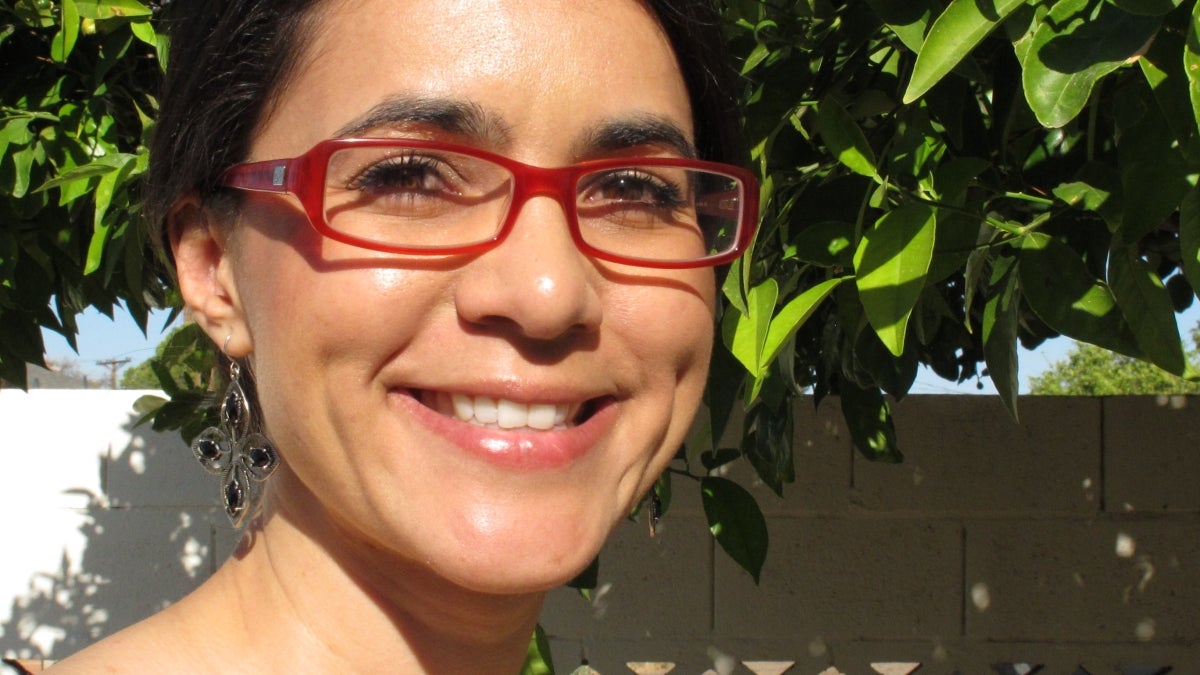Doctoral student engages Chicano/Hispanic communities

“Hard work always pays off,” says Vanessa Fonseca, a graduating doctoral student from the Spanish program in the School of International Letters and Cultures. “It’s cliché but so true.”
Between graduating, contributing to the school’s "Hispanidades Project," receiving a prestigious essay award, and landing a tenure-track job offer, Fonseca speaks from experience.
Raised in Grants, New Mexico, Fonseca recognized at an early age the dynamics of being a Chicana/Latina in the Southwest. Years later, after studying business management and teaching Spanish, Fonseca’s curiosity eventually grew into her dissertation. Unpacking colonial relationships in the Southwest, Fonseca’s dissertation includes Spanish colonization, the United States colonial period, and the post-colonial period. Fonseca explores how these older colonial relationships manifest in contemporary contexts, such as how Spanish colonial and indigenous colonial identities are celebrated through contemporary traditions.
"Fonseca’s 300-plus-page dissertation, titled ‘A Massacred Acoma, Proletariatized Hacienda Owners, and Three Liberated Dead Men: Three Colonial Periods in Chicano/a and Southwest Mexican Literary and Cultural Production, 1610-1995,' will stand as a model for the next 20 to 30 years on this topic,” says Manuel de Jesús Hernández-G, her dissertation director and ASU professor of Spanish.
Fonseca also received a national award for best essay this year – the Antonia I. Castañeda Prize – from the National Association of Chicana and Chicano Studies. The topic of her award-winning paper was Rosaura Sánchez, a Marxist critic from San Diego, whom Fonseca interviewed in person.
In addition to her excellence in research, Fonseca excelled in the classroom as a teaching assistant in the School of International Letters and Cultures. Augmenting average Spanish classes, she invested countless hours into the school’s “Hispanidades Project,” which seeks to engage students from Hispanic communities at other universities in other cities through the use of storytelling and technology.
“It’s a huge labor of love,” Fonseca says, “and something that most TAs don’t have to do.”
Students in Fonseca’s Spanish classes contributed to the “Hispanidades Project” by sharing their experiences with participating students from other universities, including the University of Washington and Columbia University. Through storytelling, participants learn from each other.
“They find out there are other Hispanics that have similar experiences, and it creates this necessary bond between Hispanics,” says Fonseca, who collaborated with professors from the other universities to make the project possible.
In addition, she hand-picked relevant literature from Chicano/a authors for her students participating in the project. The sources cover topics such as history, immigration, politics, identity and language in the Southwest. The topics were used to help cultivate Hispanic pride throughout local Hispanic communities. The North Tempe Boys and Girls Club, for example, joined the project this year, and universities such as the University of New Mexico and the University of Texas El Paso have also shown interest in joining the collaboration.
“It’s been a really fulfilling experience for me,” she says.
As a credit to her good work in both research and the classroom, Fonseca recently received a job offer as a tenure-track faculty member at the University of Wyoming.
“I felt like it was a job that was made for me,” Fonseca says. The University of Wyoming is a Research 1 institution with a student population of 13,000. And even though urban Chicano/a literature is more popular, Fonseca is excited to teach the rural Chicano experience. “There’s a lot of Chicanos there, so that’s exciting for me,” she says. Fonseca begins her new position this August.
After turning down an offer from the University of New Mexico in favor of ASU's Spanish PhD program in the School of International Letters and Cultures, Fonseca’s achievements demonstrate how hard work in a high-quality, supportive program truly pays off. Fonseca shares that she was told countless times that she’d have to work twice as hard as a Chicana to succeed in academia. Speaking from her own experience, she disagrees.
“Don’t use what other people say as excuses for not getting things done,” she says. “People can come up with lots of excuses to not continue in higher education. I don’t think everything has to get done right away. Everything gets done in its own time.”
Her time has arrived.
Story by Alison Graham, communications intern in the School of International Letters and Cultures.